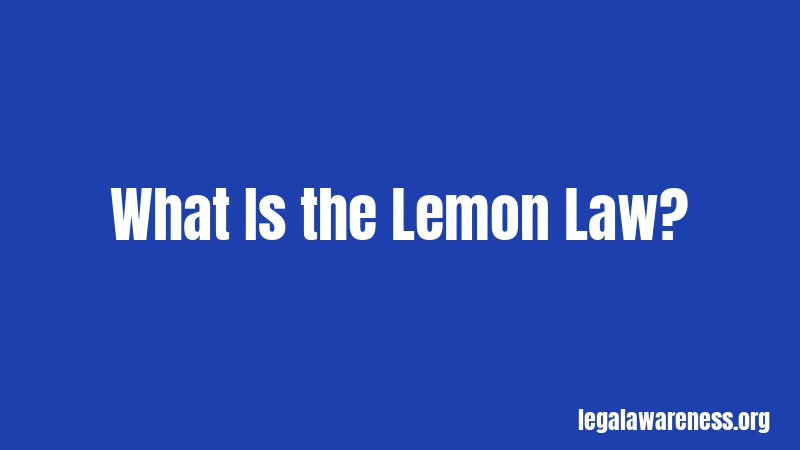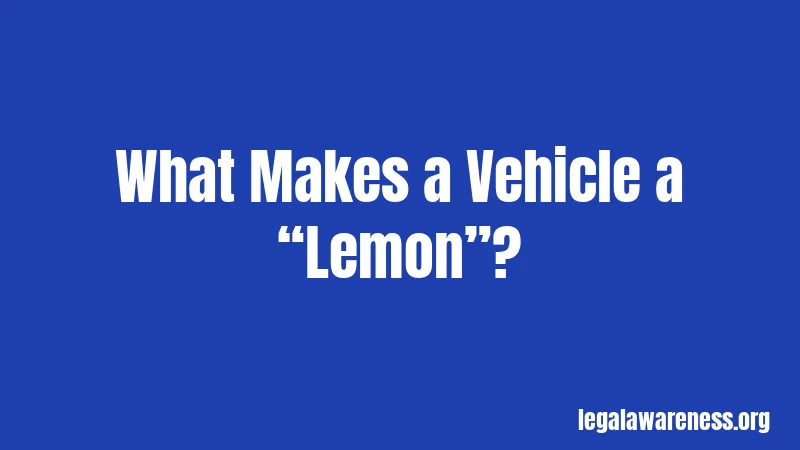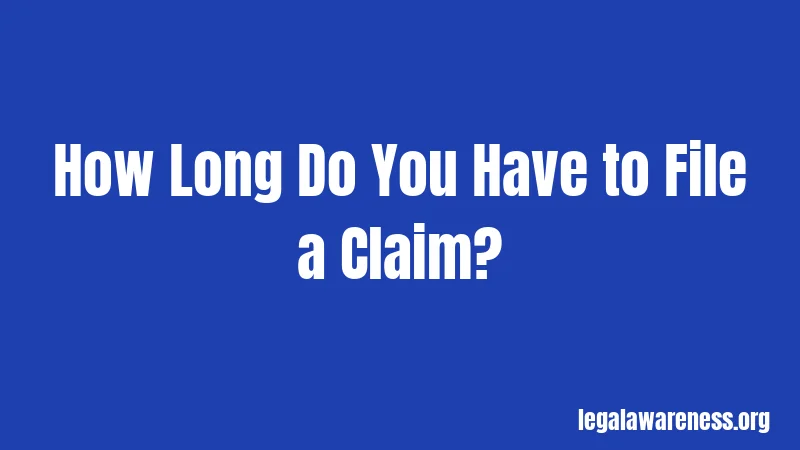Washington Lemon Laws (2026): Your Complete Protection Guide
You just bought a new car. You were so excited. Then the engine light came on. You take it to the dealer. They fix it. A week later? Same problem. Sound familiar?
Most people have no idea that Washington has a law protecting them in exactly this situation. It’s called the Lemon Law, and it’s there to help you get your money back or a replacement vehicle. Let’s break down everything you need to know.
What Is the Lemon Law?

Think of the Lemon Law like a safety net for car buyers. It says that if your brand-new vehicle has serious problems that can’t be fixed, even after multiple repair attempts, you don’t have to keep it.
Here’s the basic idea: You paid good money for a reliable car. If that car turns out to be unreliable, Washington state says the manufacturer has to either give you your money back or replace it. No questions asked (well, a few questions, but the law is on your side).
The law applies to cars, trucks, motorcycles, and even motor homes. It’s been protecting Washington consumers since the 1980s, and honestly? It’s one of the best consumer protection laws out there.
What Vehicles Does the Lemon Law Cover?
Let’s get specific here. Not every vehicle is covered. Not every problem qualifies either.
Who’s Covered
The law covers most new vehicles purchased or leased at a dealership in Washington. This includes passenger cars, pickup trucks, SUVs, and motorcycles. It even covers “demonstrators” — vehicles that were used for display but never sold yet.
Here’s something important: You don’t have to be the original owner to use this law. If you bought a used car that’s still under the original manufacturer warranty and it meets the other requirements, you might be covered too.
Who’s NOT Covered
The law does NOT cover vehicles purchased by businesses as a fleet of 10 or more cars. It also doesn’t cover trucks that weigh over 19,000 pounds. And motorcycles with smaller engines (under 750 cubic centimeters) aren’t included either.
Wondering if your specific vehicle is covered? The safest thing is to call the Washington Attorney General’s Lemon Law Administration. They’ll give you a straight answer.
What Makes a Vehicle a “Lemon”?

Not every car problem makes your vehicle a lemon. Your car has to meet specific qualifications. Seriously, this is important stuff.
The Defect Has to Be “Substantial”
This doesn’t mean any little thing that goes wrong. A squeaky door? Not substantial. A broken radio? Probably not. But an engine that stalls repeatedly? Transmission problems? Braking issues? Those definitely count.
A “substantial defect” is something that seriously impacts the vehicle’s safety, how it runs, or what it’s worth. Think of it this way: Does this problem make the car dangerous or unreliable for everyday driving?
It Has to Happen Early
The defect must show up within the first 24 months after you bought it OR within the first 24,000 miles, whichever comes first. After that window closes? The lemon law probably won’t help you anymore.
This is why keeping track of when you bought your car and your mileage matters. Seriously. Write it down.
The Dealer Has to Get Multiple Chances to Fix It
Here’s where the “reasonable attempts” rule comes in. Washington law says the manufacturer and dealership get a reasonable opportunity to fix the problem. How many attempts is “reasonable”?
Usually, it’s about 3 to 4 repair attempts for the same issue. Or 6 total repairs on the vehicle. OR the car has been in the shop for 30 or more days (total) for repairs during that first 24-month window.
If any of those things happen, and they still can’t fix the problem, you’ve got a potential lemon on your hands.
The Warranty Has to Still Be Active
This is straightforward: The defect must be covered by the manufacturer’s written warranty. Your car came with one when you bought it. The problem has to fall under what that warranty covers.
Stay with me here — this is actually simpler than it sounds.
Types of Defects That Qualify
Washington’s Lemon Law recognizes two main types of defects.
Serious Safety Defects
These are the big ones. A serious safety defect is something that could literally hurt you or cause a fire. Examples include braking failures, steering problems, or electrical issues that create a fire risk. If your car’s safety features don’t work properly, that’s a serious defect.
Nonconformity Defects
This is a fancy word for “doesn’t work like it should.” A nonconformity is any defect that substantially impairs the car’s use, value, or safety. Maybe your transmission shifts weirdly. Or the engine keeps stalling. Or there’s a major leak.
The key is this: The problem makes the car unreliable or unsafe for normal driving, OR it seriously reduces what the car is worth if you tried to sell it.
How Long Do You Have to File a Claim?

Here’s an important timeline to keep in your head.
You have 30 months from the original delivery date to request arbitration. That’s two and a half years. The defect has to show up within the first 24 months or 24,000 miles, but you can file your claim anytime within that 30-month window.
In other words: Your car has a problem in month 12. You don’t have to file your claim that same month. You’ve got until month 30 to do it. That gives you some breathing room.
But here’s the catch: You can only file if the defect showed up in that first 24-month window. Got it?
What About Motor Homes?
If you own a motor home, there are slightly different rules. The law covers motor homes, but the requirements are different depending on when it was purchased. There’s a separate Motor Home Lemon Law booklet from the Attorney General’s office that explains everything.
If you have a motor home, contact the Lemon Law Administration directly. They’ll walk you through your specific situation.
The Arbitration Process
Ready to file? Here’s how it works in Washington.
Step 1: Send Written Notice to the Manufacturer
First, you send the manufacturer a written letter. This letter says: “I want you to repurchase or replace this vehicle.” You don’t need a lawyer yet. Just be clear about what you want.
The manufacturer then has 40 days to respond to your letter.
Step 2: Request Arbitration (if they don’t fix it)
If the manufacturer doesn’t agree to fix the problem or replace the car within 40 days, you file for arbitration. You’ll send a “Request for Arbitration” form to the Washington Attorney General’s Lemon Law Administration.
Here’s the good news: This is FREE. You won’t pay a penny for arbitration. The state handles it.
Step 3: The Arbitration Hearing
An arbitrator (basically an independent judge) will review your case. You’ll explain the problems you had. You’ll show your repair records. The manufacturer gets to present their side too.
The arbitrator then decides if your car qualifies as a lemon under Washington law.
What If You Win?
If the arbitrator agrees that your vehicle is a lemon, the manufacturer has two choices: Give you a full refund (minus a small fee for how much you’ve used the car) OR replace the vehicle with an identical new one.
Either way, you’re out from under this problem. That’s what the law is designed to do.
What Counts as a “Reasonable Usage Fee”?
Let’s talk money for a second. If the manufacturer has to refund you, they don’t have to pay you the full purchase price. They subtract a “reasonable usage fee” for the miles you’ve driven.
How much is that? The law says it’s based on the vehicle’s actual use. If you drove your new car 8,000 miles before the problems started, the fee will be higher than if you drove it 2,000 miles.
But here’s the thing: The arbitrator decides what’s reasonable. It’s not some crazy amount. It’s actually pretty fair.
Think of it like this: You got to use the car. That has some value. The manufacturer subtracts that. It’s not punishment. It’s just fair.
Recent Changes and Updates
Washington’s Lemon Law hasn’t dramatically changed in recent years, but the Attorney General’s office regularly updates how it’s administered and enforced. As of 2025-2026, the process remains the same, but the state has made it easier to file online through their system.
The good news? The law still gives you strong protections. And if you hire a lawyer, they typically work on contingency. That means you don’t pay unless you win. More on that in a second.
Can You Get Attorney Fees?
Here’s something that really matters: If you win your Lemon Law case, the manufacturer has to pay your attorney fees. Seriously.
This means you can hire a lawyer to help you WITHOUT paying them upfront. Most Lemon Law attorneys work on contingency. They only get paid if you win. And when you win, the manufacturer foots the bill.
This is huge. It means even if you can’t afford a lawyer, you can still get professional help fighting the manufacturer.
What If You Miss the Deadline?
Okay, what happens if 30 months pass and you haven’t filed for arbitration? Or what if your defect showed up after the 24-month window?
The state Lemon Law won’t help you. But don’t panic — there’s a backup.
The federal government has its own lemon law called the Magnuson-Moss Warranty Act. It has different rules and may cover your vehicle even if Washington’s law doesn’t. The timelines are longer, and the protections can be similar.
If you think you’re outside the Washington window, talk to a lemon law attorney anyway. They know both laws and can tell you if the federal law might help.
What About Lease vs. Purchase?
The law covers both. Whether you bought or leased your vehicle, you have the same protections. The definition of “lemon” is the same. The process is the same.
If you leased a car and it’s a lemon, the manufacturer has to either repair it properly or replace the leased vehicle. It works essentially the same way as if you bought it.
Other Consumer Protections Working Together
Washington’s Lemon Law isn’t your only tool. Other laws can help too.
The Truth in Lending Act protects you if there were problems with how the loan was structured. The Motor Vehicle Warranties Act ensures manufacturers provide decent coverage. State consumer protection laws mean you can’t be deceived about the vehicle’s condition.
All of these laws can work together. A good lemon law attorney knows how to use multiple laws to help you get the best outcome.
Step-by-Step: What You Need to Do
Here’s your action plan if you think you have a lemon.
Document Everything
First, keep all your repair records. Every single one. Write down dates, what was wrong, what the dealer did, how long you waited. Take photos of problems if possible. Save all paperwork related to the vehicle.
Get Your Timeline Straight
When did you buy the vehicle? What was the mileage? When did problems start? When did you take it to the dealer? Write this down in a document or spreadsheet. Make it easy to reference.
Send Written Notice
Write a letter to the manufacturer. Be specific about the problems. Say you want them to either repair the vehicle properly or repurchase/replace it. Keep a copy for yourself.
Send it certified mail (with tracking) so you have proof they received it.
Wait the 40 Days
Give them 40 days to respond. Use this time to gather all your documentation and maybe consult with a lemon law attorney.
File for Arbitration
If they haven’t fixed the problem or agreed to replace the car, file your Request for Arbitration with the Washington Attorney General’s Lemon Law Administration. You can do this online or by mail.
Prepare for Your Hearing
Organize your paperwork. Get your timeline in order. Practice explaining your situation clearly and calmly. The arbitrator will appreciate a well-organized presentation.
Honestly, having an attorney help with this part makes it way easier.
Frequently Asked Questions
Can the manufacturer refuse to replace or refund my vehicle?
Not if they lose arbitration. If an arbitrator decides your vehicle qualifies as a lemon, the manufacturer must either replace it or refund your money (minus reasonable usage fees). They don’t get to say no.
Do I have to keep making car payments while pursuing a Lemon Law claim?
Yes. The law doesn’t let you stop making payments while you’re going through arbitration. It’s not fair, but that’s how it works. This is why getting resolution quickly matters.
What if the same problem keeps happening after arbitration?
If the manufacturer’s “replacement” vehicle develops the same defect, it can also qualify as a lemon. You’re not stuck in an endless cycle.
How long does the arbitration process actually take?
Usually, a few months. It depends on the arbitration board’s schedule. You won’t wait forever though — these cases move pretty smoothly.
Do I need a lawyer?
No, but having one really helps. You can represent yourself, but an attorney knows the law inside and out. Plus, you don’t pay upfront because they work on contingency. It’s smart to at least consult with one for free.
What if my vehicle isn’t covered by manufacturer’s warranty anymore?
You might still be covered under the Magnuson-Moss Warranty Act if the vehicle was purchased with some kind of written warranty. Talk to an attorney about this.
Can I take the manufacturer to court instead of arbitration?
Not first. You have to go through arbitration with the Attorney General’s office first. After that, if you’re unhappy with the result, you can take them to court. But arbitration is the required first step.
Final Thoughts
Okay, here’s the real talk: Washington’s Lemon Law is strong. It’s genuinely one of the best in the country. The state recognized that car buyers deserve protection when they get stuck with a defective vehicle.
If you think you have a lemon, don’t just accept it. Don’t keep throwing money at repairs. The law exists so you don’t have to. Document your problems, follow the steps, and reach out for help.
Start by contacting the Washington Attorney General’s Lemon Law Administration. They’re there to help, and their services are completely free. Or talk to a lemon law attorney who can review your situation for free.
You have rights. Use them.
References
Washington State Attorney General – Lemon Law Administration
Washington General Lemon Law Information
RCW 19.118 – Washington State Lemon Law Statute
BBB National Programs – Washington Lemon Law
